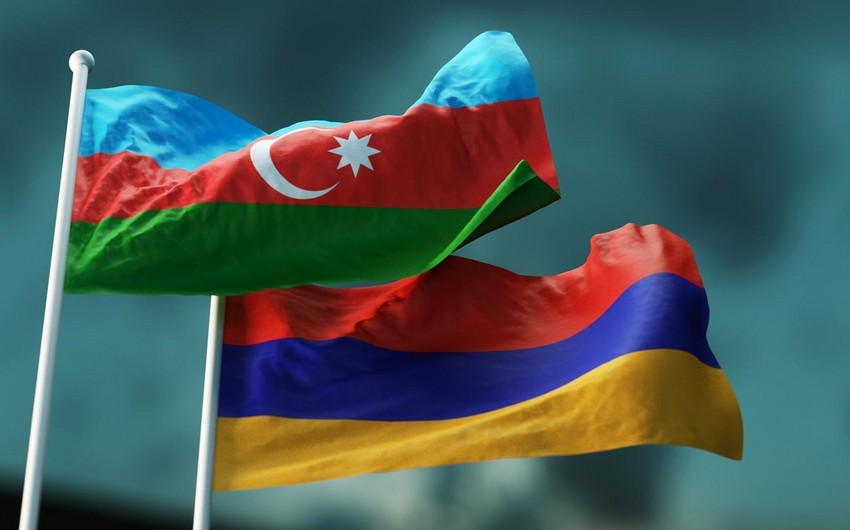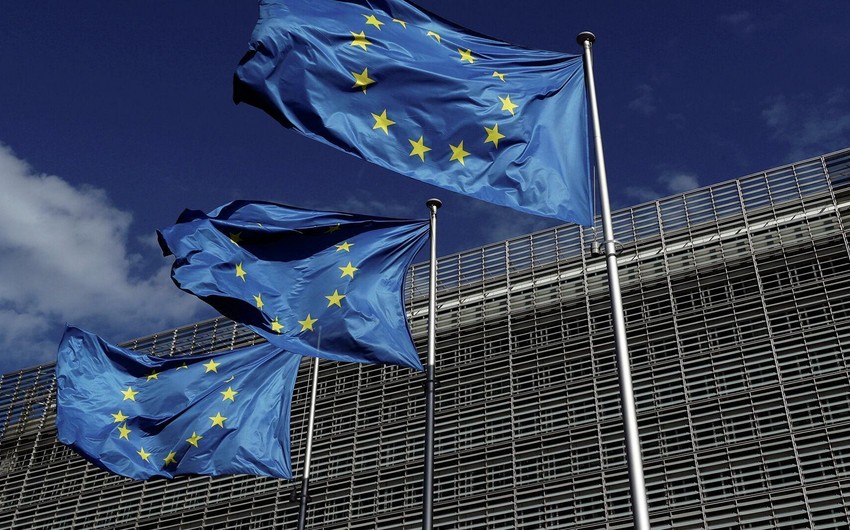EU special rep for South Caucasus: 'I conveyed Baku's concerns to new leadership'
- 31 January, 2025
- 07:11

Since 2009, Azerbaijan has been cooperating with the European Union in bilateral and multilateral formats within the Eastern Partnership program.
Through continuously developing relations, Azerbaijan is today one of the EU's important trade and export partners. Currently, Azerbaijan plays an exceptional role in energy supply to member countries of the organization. However, cooperation with the EU is significant not only economically but also politically. One of the key figures in regulating relations in this area is the EU Special Representative for the South Caucasus and the crisis in Georgia.
Magdalena Grono has been appointed to this position effective November 1, 2024. The new special representative made her first official visit to Azerbaijan and Armenia on January 7-11. During these visits, she was received by Azerbaijan's President Ilham Aliyev and Armenia's Prime Minister Nikol Pashinyan. She also met with various state and government officials to discuss several topics, including ensuring peace and stability in the South Caucasus region.
In her interview with Report, Magdalena Grono answered questions about the details of those visits, the nature of her mission regarding Azerbaijan and Armenia, ways the EU pursues a balanced policy in relations with Baku and Yerevan, and steps that should be taken to develop EU-Azerbaijan partnership.
- Ms. Grono, you made your first official visit to Azerbaijan and Armenia after taking office as the EU Special Representative for the South Caucasus. What impressions did your consultations with the parties form about the two countries?
- Indeed, I undertook my first official visits as EUSR to Azerbaijan on 7-8 January 2025 and Armenia on 9-11 January 2025. I believe these were timely and important visits, during which I had the opportunity to meet with the top leadership of both countries: I was received by President Aliyev on 8 January in Baku, and by Prime Minister Pashinyan on 9 January in Yerevan and also met with a number of other official and civil society interlocutors.

In our exchanges, I heard encouraging statements regarding peace and stability in the region, often different from the tonality that we have heard in the public space, in particular on the continuation of the normalization process between the two countries. I strongly encouraged the sides to maintain the momentum created thanks to the progress reached over the past few years, in particular on their bilateral track since December 2023. In this context, I underlined the importance of ensuring a calm and positive environment conducive to reaching decisive agreements on outstanding issues, hopefully soon, be it for the peace treaty, or on connectivity and humanitarian issues.
I believe an important first stage of normalization is already seeing results: Azerbaijan and Armenia have a structured and well-organized framework for their discussions, with a clear commonly agreed basis and scope. Now is the time to display the political will that is needed to turn the page of conflict once and for all, to agree on mutually acceptable solutions for all outstanding issues, and to ensure a peaceful and more prosperous life for all populations in the region.
- Direct talks are now being held between Azerbaijan and Armenia. In this case, what constitutes the basis of your mission regarding the two countries?
- The bilateral track in the Azerbaijan-Armenia normalization efforts has been key in delivering substantial progress over the past year, first and foremost in the context of peace treaty talks, border delimitation and demarcation, but also in other areas. We all remember the landmark joint Azerbaijan-Armenia statement of 7 December 2023, as a result of which the sides agreed on the organization of COP29 and a mutual release of prisoners. Back then, Armenia and Azerbaijan indicated that they would continue their discussions for the implementation of more confidence-building measures and called on the international community to support their efforts. This is precisely the context in which my visit took place.
Together with Baku and Yerevan, we explored how the EU could be most helpful in supporting Azerbaijan-Armenia normalization and broader regional cooperation. At this stage, we have identified several areas, with the understanding that the EU stands ready to also do more. In Baku and Yerevan, we agreed that the EU would continue its support to ongoing Azerbaijan-Armenia bilateral talks, would focus on concrete aspects of connectivity and humanitarian issues, especially regarding demining and addressing the issue of missing persons, and would also promote regional cooperation initiatives.
- The EU's activities are sometimes criticized in the context of relations with Azerbaijan and Armenia. What steps are being taken or planned to maintain a balanced policy with the parties?
- We always carefully listen to any criticism or divergent views - and try to understand what grievances there may be, and what may lie behind them. We seek to clarify potential misperceptions – but we are equally committed to dispelling any possible disinformation. It is my strong intention to dispel any possible misperceptions by engaging in a transparent, honest and continuous dialogue with the sides. As you know, my office is in contact on a daily basis with a variety of actors in both countries. We have a significant network of contacts, be it among government officials, civil society, local experts or international structures who work there. This allows us to have a nuanced understanding of the situation on the ground and the various trends that exist.

During my visit, I also explored in detail with Baku how to reshape and resume our EU-Azerbaijan political dialogue at the highest but also all other levels. I heard interesting proposals and relayed them back to Brussels. It is our intention to move forward on our bilateral agenda with renewed energy, with a better understanding of where we stand and what we want to achieve. EU-Azerbaijan relations are certainly not limited to energy and security issues.
In the same spirit, EU-Armenia relations are broad – and certainly not limited to our assistance to ongoing reforms, democracy and human rights. Our bilateral agendas are much wider and more comprehensive.
As far as perceptions are concerned, I can also assure you that the EU – as I often read here and there – does not intend to create new dividing lines, engage in “zero-sum games” or promote a “hidden agenda” in the region. To the contrary, we are here at the request of Baku and Yerevan and with a clear desire to assist our partner countries, Armenia and Azerbaijan, in moving forward toward a stable, secure and prosperous future. This assistance is driven by the scope and depth of engagement Baku and Yerevan are requesting.
The EU is strongly committed to this strategic region and partnerships with both Azerbaijan and Armenia, as equal partners.
- Overall, what are your priorities in South Caucasus policy? What differences will we observe in your activities compared to the policy implemented by your predecessor?
- As EUSR, I have very clear policy objectives and a mandate given by the EU Member States. I intend to build on my engagement with issues in this region over the past decades. Together with the other actors in the EU family, we’ll continue our coordinated and proactive approach to the South Caucasus.

- The South Caucasus is rich in natural resources and therefore is a region where various interests clash and tensions sometimes occur. As an EU representative, what will be your contribution to peace and stability in this region?
- As I have mentioned, the EU more broadly - and I in the role of the EUSR - will continue to work with partners to promote peace and stability, together with other relevant EU structures, by supporting the bilateral normalization process through assistance in the spheres of connectivity and humanitarian issues, as well as any other area Baku und Yerevan might request. We are also keen to support normalization in the wider societal sense.
- Based on your visit and several months of observations, what, in your opinion, are the ways to develop Azerbaijan-EU relations? What steps need to be taken by the parties?
- My contacts with Azerbaijani counterparts have developed over the last two decades; prior to taking up the role of the EUSR, I had the opportunity to work as Chief Diplomatic Adviser to President Michel and also as foreign policy adviser to President Tusk; in both these capacities I worked closely with Azerbaijani colleagues, and had the opportunity to witness the trajectory of the EU-AZ relationship. During my recent visit to Baku, I listened carefully to the positions of my interlocutors, their appreciation of our cooperation, and also some of their grievances. I conveyed all these messages to the new EU leadership in Brussels. It is my expectation that these exchanges will continue in the coming months, with the aim of reaching a common understanding on the way forward as soon as possible.
